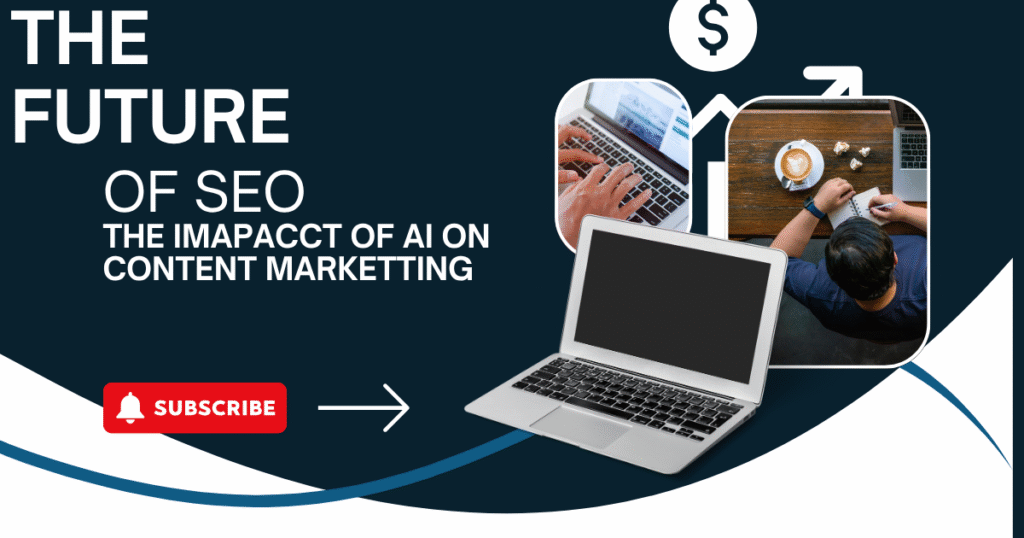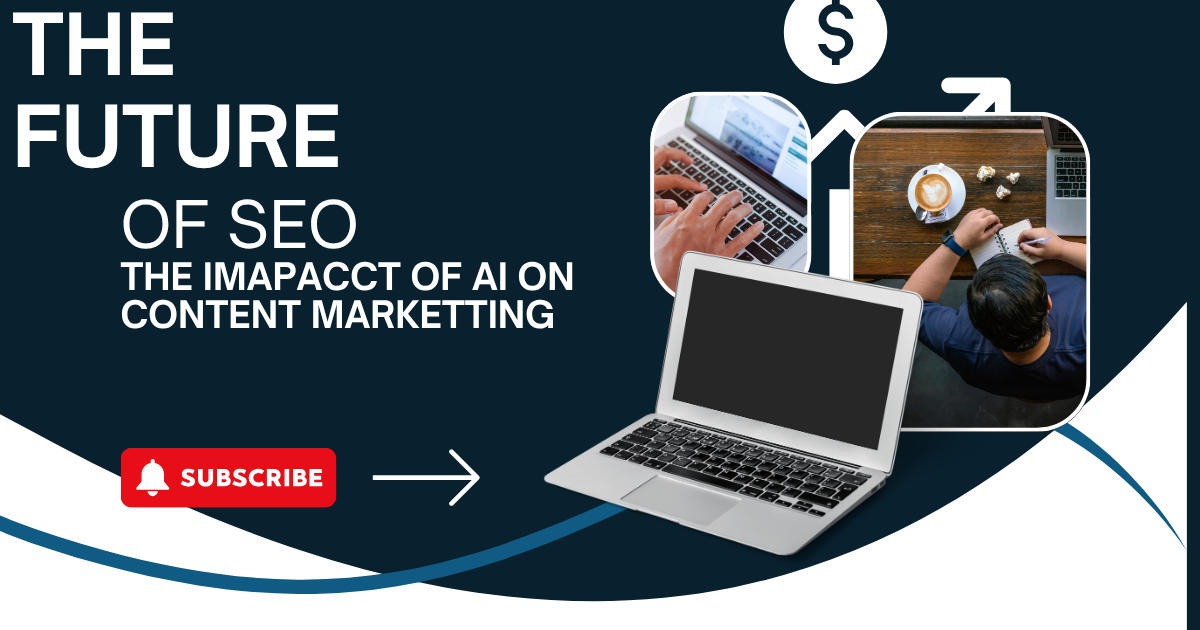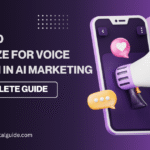In the continuously changing realm of digital marketing, Search Engine Optimization (SEO) has always been a challenge to pin down. However, the advent of Artificial Intelligence (AI) marks a significant transformation in this sphere. For content marketers, grasping how AI is revolutionizing SEO is not merely beneficial—it’s crucial for maintaining a competitive edge.
This article will delve into the ways AI is influencing SEO, the new possibilities it presents for content marketing approaches, and effective strategies to safeguard your brand in this era driven by AI.

1. The Transformation of SEO Through AI
Not long ago, SEO was primarily focused on keyword optimization, building backlinks, and making technical enhancements to websites. While these elements continue to hold importance, algorithms powered by AI—such as Google’s RankBrain and BERT—are evolving the methods by which search engines assess and rank online content.
Some key transformations driven by AI within SEO include:
- Emphasis on search intent: AI can comprehend the underlying meaning behind user queries rather than just focusing on specific keywords.
- Contextual evaluation: Websites are assessed based on their topic depth, semantic relevance, and level of user interaction.
- Voice-activated and conversational inquiries: Voice assistants powered by AI facilitate more natural and longer phrases in searches.
- Adaptive SERP outcomes: Google’s use of AI now allows for featured snippets, knowledge panels, and overviews created with artificial intelligence directly shown in search results.
- For those in content marketing, this shift necessitates producing material that is rich not only in keywords but also valuable contextually and oriented around user needs.
2. The Importance of AI in Comprehending Search Intent
A significant evolution in the future landscape of SEO is the way search engines perceive user intent.
Previously, focusing on a keyword like “best running shoes” simply required including that phrase numerous times throughout your content. Nowadays, AI-driven search algorithms have the capability to distinguish between:
- Informational intent (“What are the best running shoes?”)
- Transactional intent (“Purchase best running shoes online”)
- Navigational intent (“Official Nike website”)
- This development indicates that content marketers need to concentrate on optimizing for search intent instead of merely keywords. To achieve this:
- Investigate related terms and semantic variations.
- Provide answers to potential follow-up queries within your content.
- Incorporate structured data to assist search engines in understanding your page better.
3. AI Tools Influencing Content Marketing
Contemporary AI SEO tools are revolutionizing how marketers strategize, create, and refine their content. Platforms like Surfer SEO, Clearscope, and MarketMuse analyze leading-ranking articles and propose methods for enhancing your piece’s depth, keyword usage, and readability.
AI also aids with:
- Content ideation: Generating blog title suggestions aligned with trending searches.
- Content optimization: Recommending internal links, meta descriptions, and enhancements for on-page elements.
- Performance tracking: Anticipating which pieces of content are most likely to rank effectively.
- Personalization: Providing varying formats of content tailored for distinct audience segments.
For instance: A content marketer can now enter “The Future of SEO” into an AI tool and receive a comprehensive outline featuring suggested headings as well as a list of impactful keywords such as AI-based SEO strategies, automation in SEO processes, and optimal AI-driven content techniques.
4. Optimizing for Voice Search in the Age of AI
As voice assistants like Siri, Alexa, and Google Assistant are driven by artificial intelligence, optimizing for voice search has emerged as a fresh challenge in the realm of SEO.
- Important aspects for content marketers to consider include:
- Emphasizing conversational keywords along with inquiries phrased as questions.
- Utilizing FAQ sections to address frequently asked questions based on voice searches.
- Making certain that your website loads swiftly and is mobile-optimized—essential factors influencing voice search outcomes.
- Prioritizing local SEO optimization since a significant number of voice searches involve location-based queries.
5. Best Practices for AI-Generated Content and SEO
AI-powered content creation tools can generate articles, product descriptions, and advertising copy almost instantaneously. Nevertheless, it’s important to note that Google prioritizes originality and value provided to users above everything else.
To effectively use AI while safeguarding SEO integrity:
- Leverage AI for drafting and conducting research but incorporate human editing to infuse personality and ensure precision.
- Steer clear of using identical outputs from AI that may appear across various platforms.
- Integrate personal anecdotes, case studies, and expert testimonials which cannot be replicated by AI-generated text.
- Continuously refresh AI-produced content to maintain its relevance over time.
Keep in mind: While AI should serve as a support tool for content marketers—it should not substitute their role.
6. Customization Through AI-Driven SEO
Artificial Intelligence is capable of processing vast amounts of user information to tailor content suggestions. For instance:
- – Adaptive landing pages that respond to user interactions.
- – AI-enhanced email campaigns featuring SEO-friendly subject lines.
- – Content designed for each phase of the customer journey.
The synergy between SEO and personalization boosts engagement metrics, which subsequently enhances search rankings.
7. Anticipatory SEO: Strategizing with AI Insights
Anticipatory SEO employs AI to predict which subjects are likely to draw search interest in the coming months. Resources like Google Trends, BuzzSumo, and Exploding Topics assist marketers in spotting trending keywords ahead of their rivals.
For example, an AI tool could identify a growing fascination with “AI-driven keyword research” well before it becomes mainstream. A content marketer who publishes on this topic earlier can secure top search rankings prior to peak competition.
8. Ethical Issues in AI-Powered SEO
Despite the remarkable benefits provided by AI, there are ethical dilemmas that need attention:
- Bias within AI algorithms: Models may perpetuate biases present in their training datasets, impacting search results.
- Transparency: Being upfront about when content involves AI support fosters trust.
- Over-reliance on automation: Depending completely on AI might dilute a brand’s distinct voice.
Engaging in ethical content marketing during the era of AI involves striking a balance between technology and authenticity.
9. Strategies for Content Marketers to Evolve with Future SEO
To thrive in an SEO landscape dominated by AI, content marketers need to:
- Emphasize understanding search intent rather than resorting to excessive keyword usage.
- Adopt AI tools for effective research and optimization, while ensuring human oversight remains integral.
- Allocate resources towards multimedia—such as videos, podcasts, and infographics—to cater to various search formats.
- Implement structured data so that AI-driven search engines can better interpret your content.
- Prioritize E-E-A-T (Experience, Expertise, Authoritativeness, Trustworthiness).
10. Conclusion: Embracing the Synergy Between AI and SEO
The evolution of SEO cannot be detached from the influence of AI. Instead of dreading its impact on content development and enhancement, marketers should recognize it as an ally that enhances efficiency, precision, and outcomes.
By merging creative human input with insights derived from AI technologies, content marketers can create top-notch and pertinent material that appeals not only to search algorithms but also to actual readers.
Brands that will succeed are those willing to adapt swiftly, explore new possibilities regularly while maintaining their genuine voice—even in a landscape where AI influences almost every aspect of the search process.









